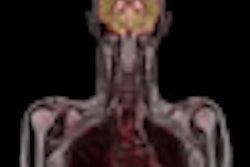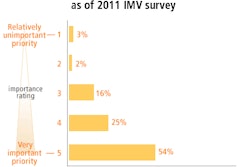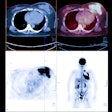Johns Hopkins University has received a five-year research grant worth more than $8 million from the U.S. National Cancer Institute (NCI) to study early diagnostic tests and new treatments for breast, prostate, and other common cancers.
The university will use advanced imaging tools developed at its In Vivo Cellular and Molecular Imaging Center (ICMIC) to find new ways to detect cancer in its earliest stages. It will also investigate therapeutic ways to stop or kill cancer before it can metastasize.
The principal investigator on the initiative is Zaver Bhujwalla, PhD, who said researchers will use imaging modalities including CT, MRI, SPECT, PET, laser optics, and ultrasound alone or in combination to detect cancer earlier and faster. Bhujwalla will oversee more than 30 Johns Hopkins researchers, biostatisticians, and lab technicians involved in the project. Associate directors of the center will be Dr. Marty Pomper, PhD, and Dr. Richard Wahl.
Research studies currently under way at ICMIC include the following:
- A study by Bhujwalla and Pomper to use MRI, SPECT, and optical or laser-guided imaging to identify cancerous prostate cells by homing in on prostate-specific membrane antigens (PMSAs).
- A project led by Dr. Richard Ambinder, PhD, to use PET scans to guide a viral-activated drug called bortezomib to kill tumor cells in patients with Kaposi's sarcoma.
- A study led by Peter van Zijl, PhD, and Dmitri Artemov, PhD, to use MRI to detect the earliest possible metabolic and biological changes in breast cancer.




















